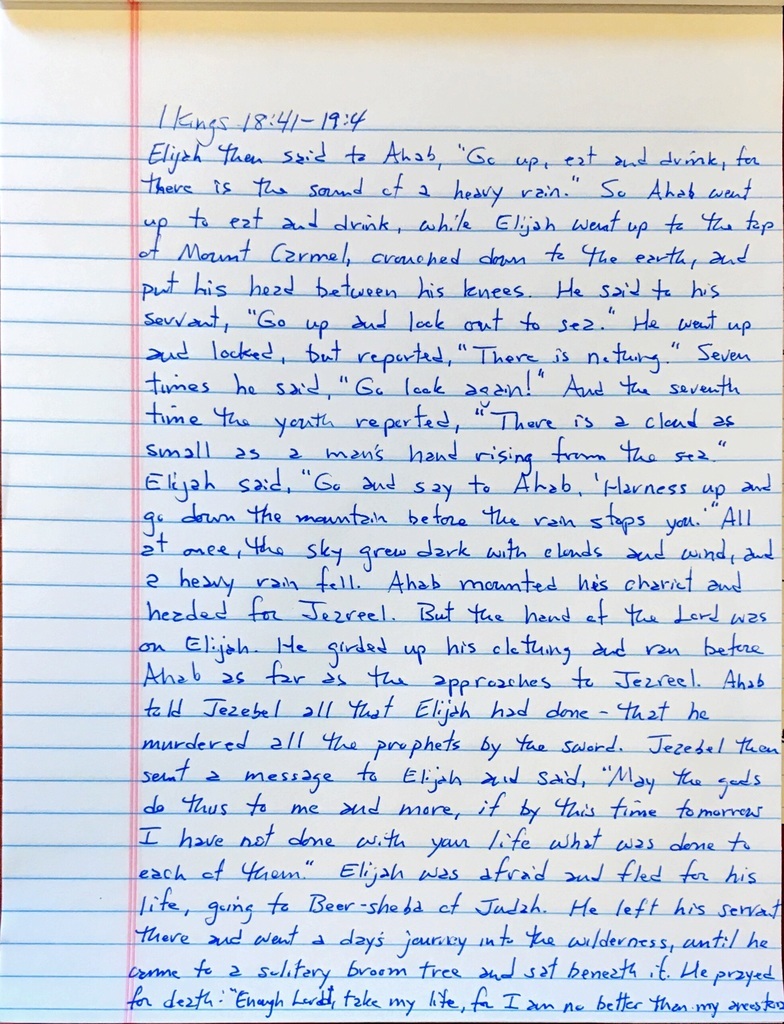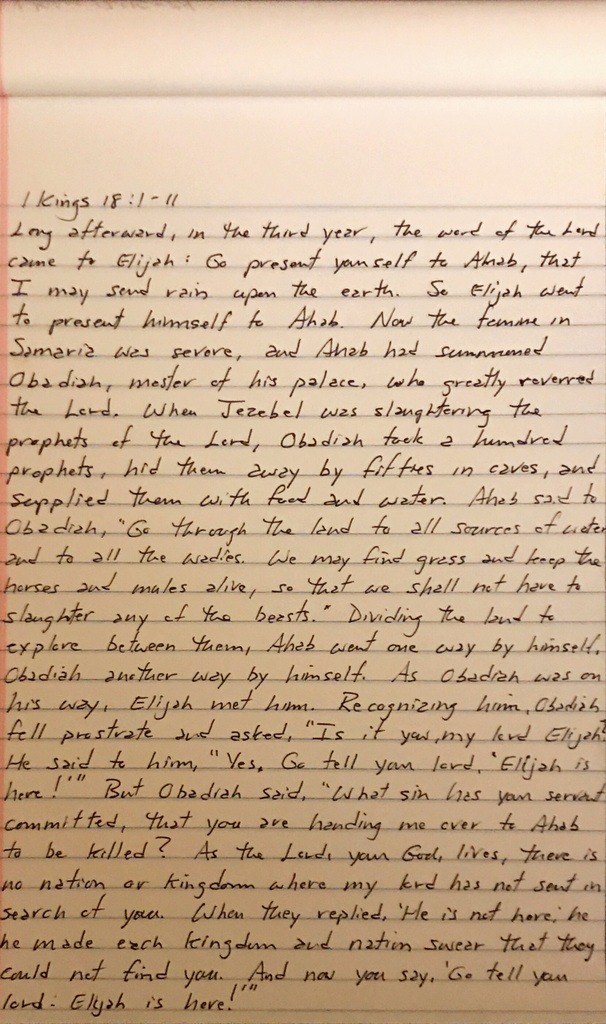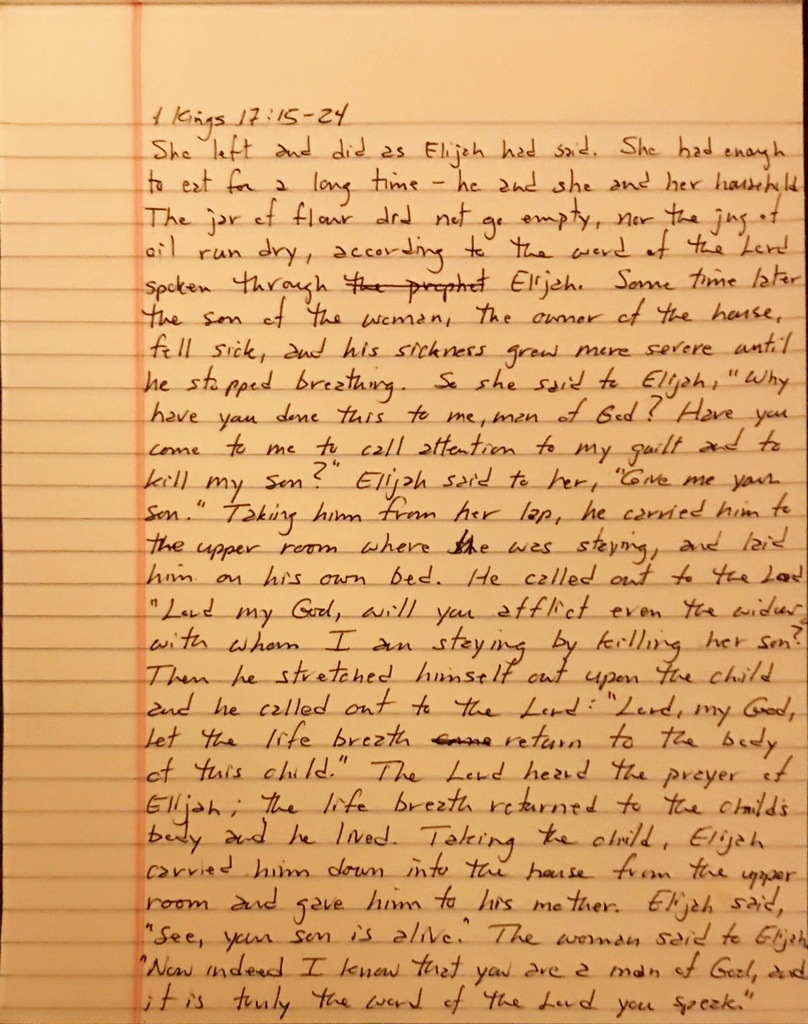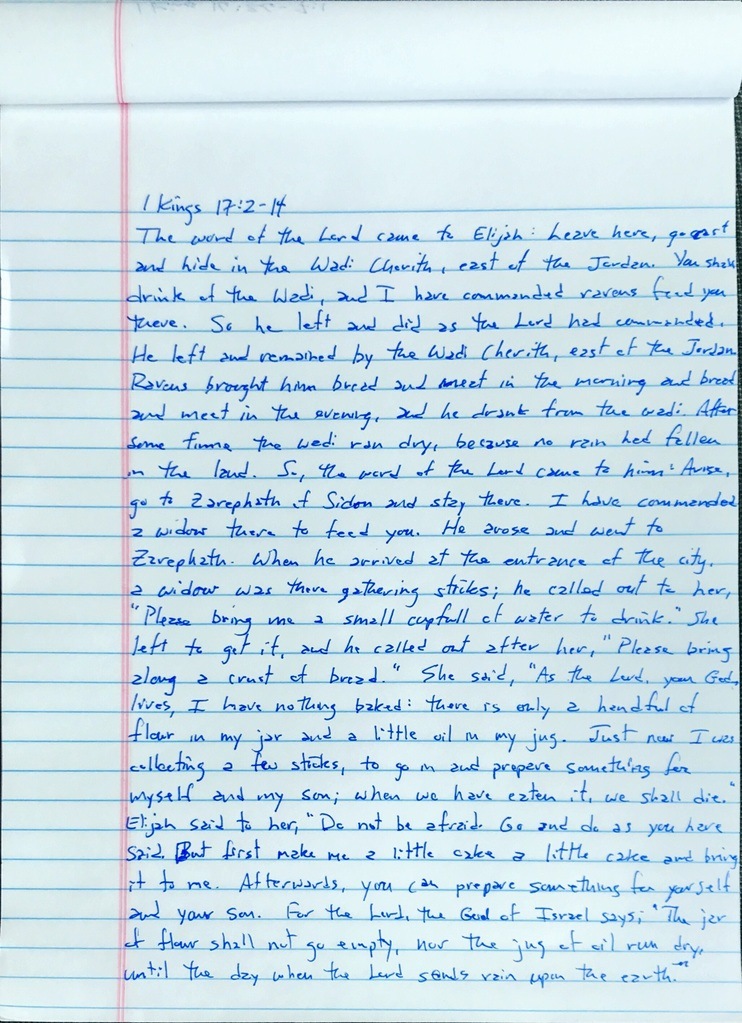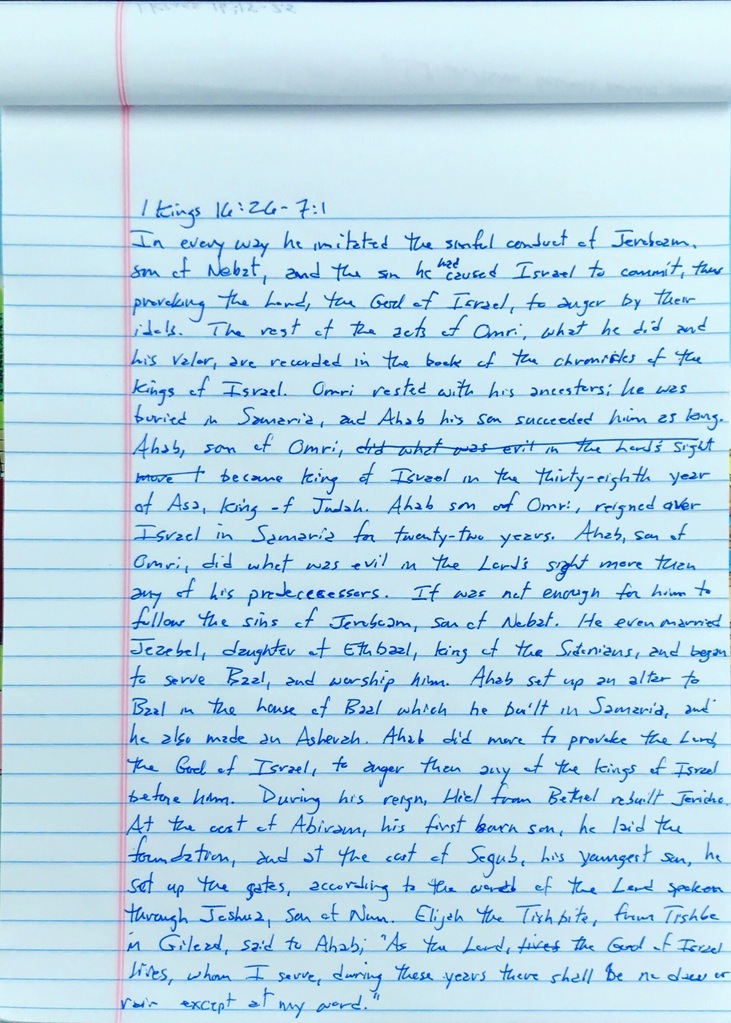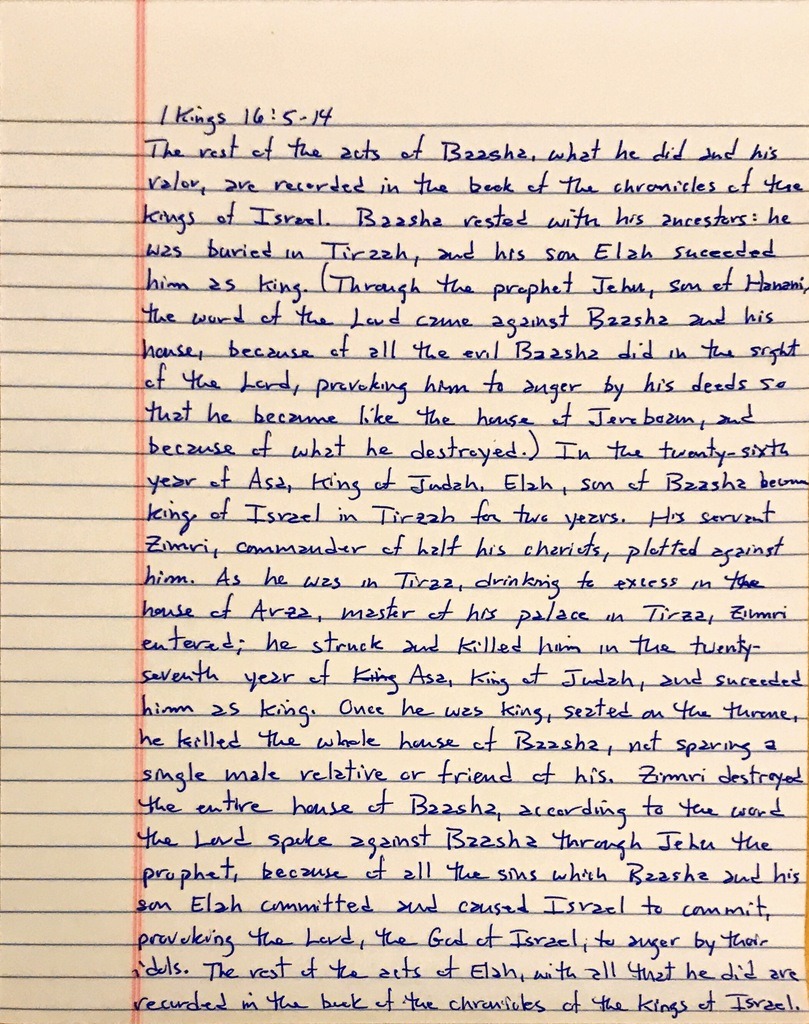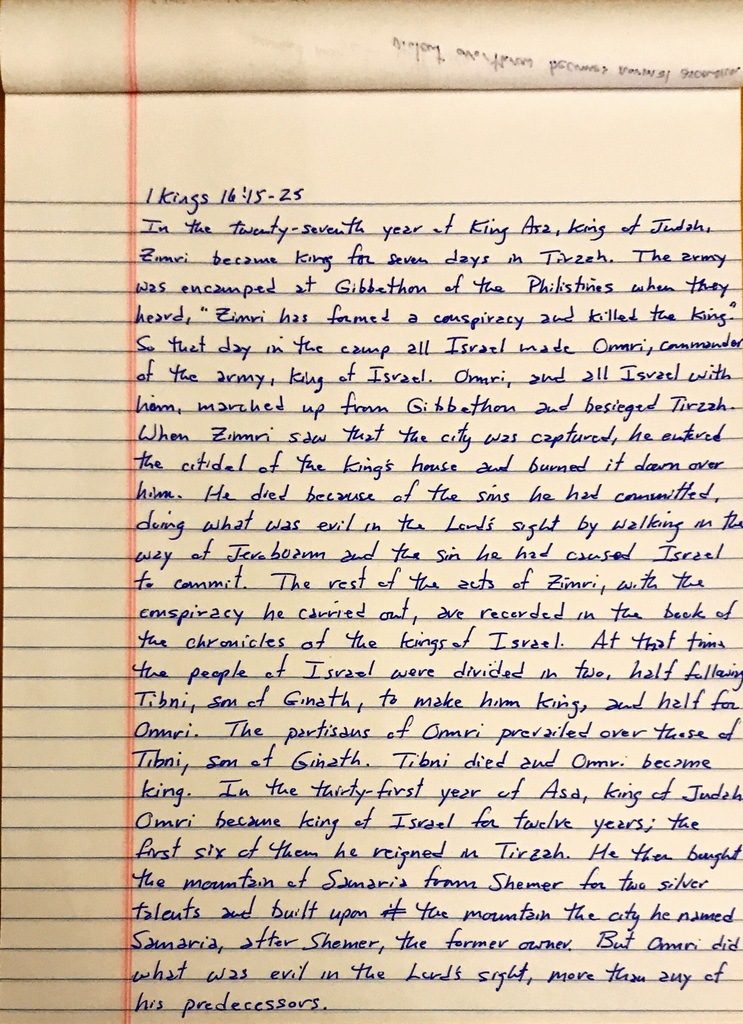
Synopsis 1Kings 16:15-25 5/24/2019
Zimri became king of the northern tribes of Israel. He came to power after murdering King Elah and all his family. But he ruled only seven days.
The army of Israel was besieging the Philistine city of Gibbethon when the news arrived. The tribal leaders convened a meeting. And they agreed to resist Zimri’s conspiracy. As an alternative, they selected another general to become king. His name was Omri.
So, Omri led the army from Gibbethon to Tirzah, where Zimri had assumed the throne. And they attacked the city. Once Zimri realized his imminent defeat, he made a fateful decision. He entered the fortified citadel and burned it down on top of himself.
However, though the tribal leaders had selected Omri as the next king, some Israelites leaders preferred a man named Tibni. This created a short civil conflict. But in the end, Omri prevailed in the conflict and Tibni died. After this, Omri was then officially made king.
Zimri’s Violence Brings Violence
Zimri formed a violent conspiracy against King Elah. But once he chose to actually use violence, the range of his freedom narrowed. Zimri murdered both Elah and his entire family in cold blood. And because of this, he was sure to have adversaries intent on avenging this murder.
So, from the moment he assassinated Elah, Zimri was destined to either defend his throne with violence or die trying. And, of course, he died trying.
My Violence Brings Violence
My little acts of violence are not different than Zimri’s. No, I’ve never assassinated the head of my nation. But I use aggressions none-the-less.
This is part of what it means to be human. This is part of what it means to be born with original sin. Whenever I over-focus on my own needs and desires, I make critical mistakes. And unfortunately, my mistakes can do a lot of damage.
Of course, it is little credit that in general, I don’t actually use what most people call violence. Instead of a sword, I have the ability to use words to injure and manipulate.
Still, when I use aggression in any form to get what I want, it only breeds resentments and resistance. So, like Zimri, eventually I will have to defend myself against the counter-aggressions of people who feel like I’ve taken advantage of them.
And too often, these are the people that I call family and friends.
So, let me resolve to follow the command. Let me put my sword back into its sheath before a fight breaks out.
“Then Jesus said to him, ‘Put your sword back into its sheath, for all who take the sword will perish by the sword.’” Matt 26:52


